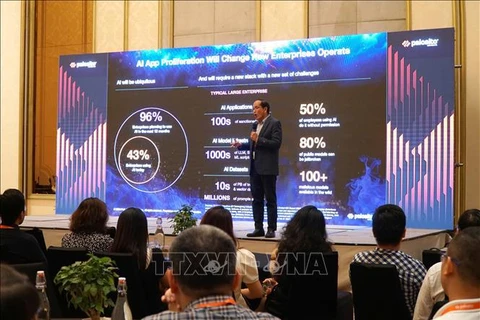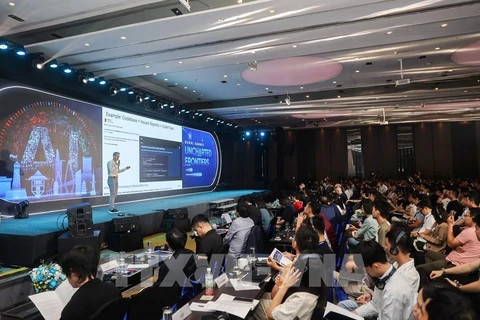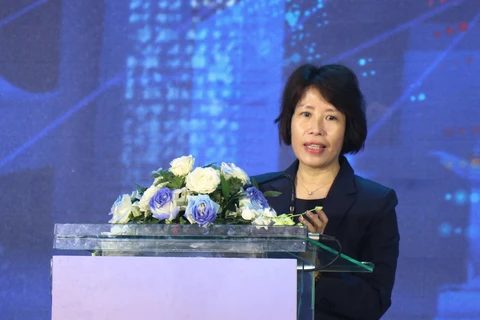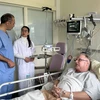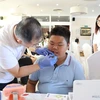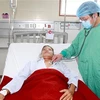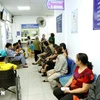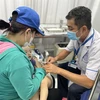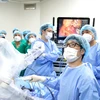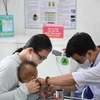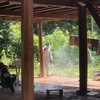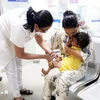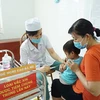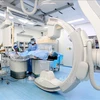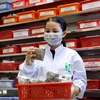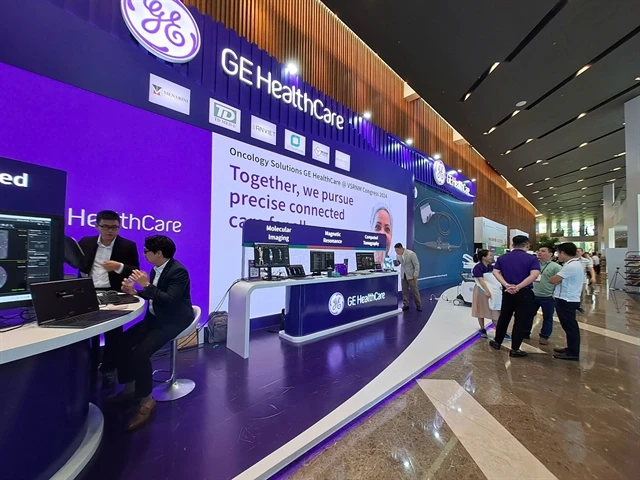
Da Nang (VNS/VNA) - The use of artificial intelligence (AI) in medical imaging diagnostics helps doctors reduce working time and make decisions faster with higher accuracy, Dr Mai Hong Son from the Military Hospital 108 shared at a medical conference in Da Nang city on the weekend.
Son told the conference 'Solutions to accelerate AI adoption in healthcare in the central city' AI applications also supported doctors in producing reports in disease diagnosis in five minutes rather than the usual 20 minutes, with precision ratio of 80%.
“AI applications now have been widely used in different fields, but healthcare is among the top four used in Vietnam. We have been cooperating with IT engineers in building more new applications of AI in medical imaging service and treatment,” Dr Son said.
“I expect that more hospitals will be using more hi-tech and AI in providing the best service for people.”
According to the ministry of health, Vietnam’s healthcare sector has been speeding up AI research and the use of technology in medical treatment as well as digital transformation of health care.
Vietnam now has a population of more than 100 million people, about 1,400 public hospitals, more than 350 private hospitals and more than 50,000 clinics, the Ministry of Health reported.
One million people will be screened for diseases through an artificial intelligence (AI) platform during a volunteer programme for community health, the Vietnam Young Physicians' Association (VYPA) proposed.
Professor Curtis Langlotz, director of Stanford centre for AI and Imaging, shared the benefit of AI use and future of AI in radiology as well as empathy of Chatbot explanation.
Steven Truong Quoc Hung, Founder and CEO of VinBrain, said: “With generative AI, we are rewriting the story of Vietnamese healthcare, a story full of hope and innovation.”
He said the healthcare industry was facing difficulties on all fronts and from radiologist shortfall and inefficient data management.
Hung said that two thirds of the world had limited access to diagnostic imaging interpretation and four billion images were taken every year with annual growth of 10%.
Billions of data points would be hard to utilise even by a healthcare professional, he said.
Doctors from the Da Nang-based Public Security Hospital 199, also shared how they were applying digital transformations and AI in the local healthcare sector.
Four hundred participants from hospitals, medical centres, including specialists and doctors, attended the conference, which also hosted an exhibition of medical equipment and AI tech facilities from Canon, Samsung, LG, Siemens and Phillips./.
